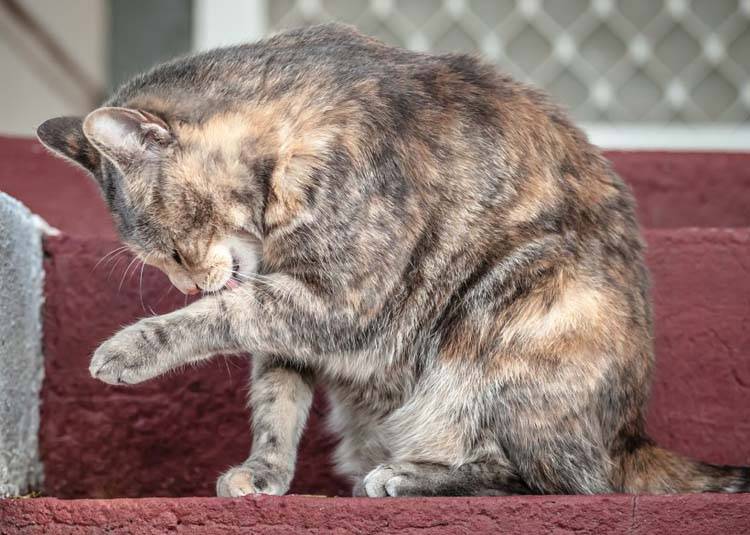Cat Excessive Grooming
By Penny Derbyshire-Baldyga
Everyone knows cats are persnickety when it comes to being clean. However, uncontrollable scratching, chewing or biting not only causes a cat problem, but is also a concern for the owner. Psychogenic alopecia, or loss of fur, is considered a compulsive behavior disorder and can be caused by several situations.
Causes of Psychogenic Alopecia
Change in Environment
A change in a cat’s environment (a new home, birth of a child, new pet added to the household, etc.) can disrupt what she considers her daily routine. This change can trigger tension. When a cat grooms, she releases endorphins that make the cat feel better. However, if the tension continues, the cat continues to lick until the grooming becomes excessive.
Parasites and Itchy Skin
Sometimes, parasites (fleas, ticks, and ear mites) or dry and itchy skin can trigger tension. Pain in a localized area, growth or tumor on the skin can also trigger excessive grooming. Arthritis pain in any joint can cause the cat to concentrate extreme licking on one area.
Medical Conditions
Medical conditions, such as cystitis (inflammation of the bladder), problems with anal sacs and even hyperthyroidism (a common glandular disorder) can cause stress.
Boredom
Some indoor cats become bored due to reduced exercise and less stimulation, and the lack of interest in their surroundings can manifest in extreme grooming.
RELATED: Enrichment for the Indoor Cat
Symptoms
Cats normally spend more than 30 percent of their lives grooming so spotting a cat who is over grooming can be a challenge. Signs of over grooming include: fur that is down to stubble or large patches of missing fur. You may also find big clumps of fur on the floor or on the cat’s bedding. The cat can also appear nervous and tend to hide, bite herself or not eat.
Treatment
If you suspect your cat is over grooming, take her to a veterinarian to rule out any medical issues. The veterinarian may also recommend pheromone therapy to help your cat feel less stressed. If the cause isn’t medical, your cat may need more stimuli to reduce stress. Your cat may need more attention (especially if another pet has been added to the household), interactive toys, one-on-one playtime or even a window perch so she can view birds and other goings-on outside.
Sources:
www.drsfosterSmith.com
www.healthypets.com
www.pets.webmd.com
You may also like: Hairballs in Cats





